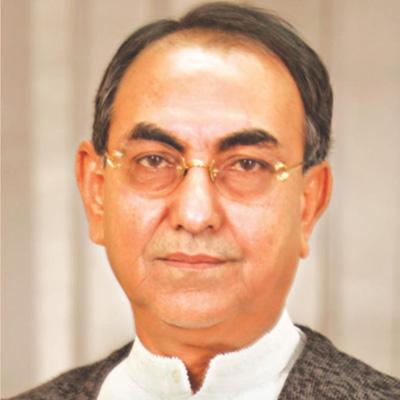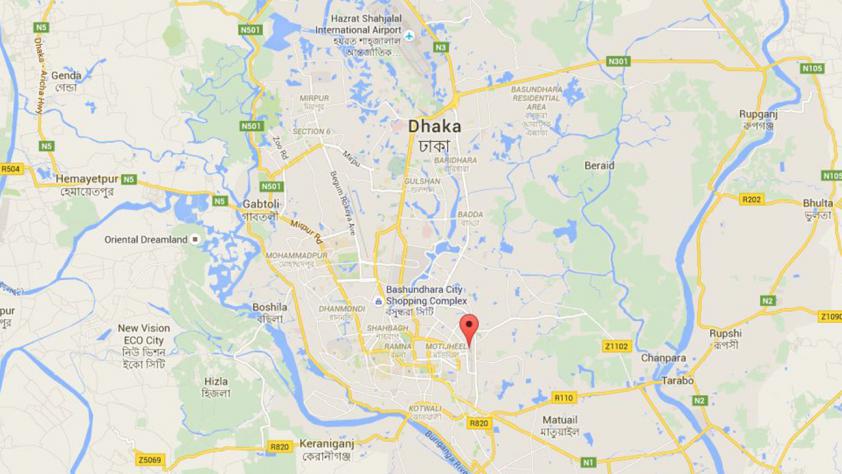Banks asked to accept mutilated coins, charred notes
Bangladesh Bank on Monday asked the scheduled banks to accept mutilated coins and charred low denomination currency notes in line with the Bangladesh Bank (Note Refund) Regulations 2012. The BB issued a circular to managing directors and chief executive officers of all banks saying that it had recently received allegations that the banks were reluctant to accept mutilated and charred coins and low denomination currency notes violating the regulations. In the circumstances, people are facing hazard and that is also hampering the normal economic activities, the circular said. The BB will take punitive measure against the banks which will not take initiative in this regard as it (central bank) earlier issued several directives on the matter, it said. According to the BB regulations, the banks have to pay full value of a currency note to clients through the cash counters if the single largest piece of a mutilated or charred note presented is more than 90 per cent of the note. The banks will have to pay 50 per cent value, if the single largest piece of the note presented before the bank is between 51 per cent and 75 per cent of the note. The clients will get 75 per cent of its value, if the single largest piece presented is between 76 and 90 per cent of the note.
News:New Age/8-Sep-2015Bad loans haunt Greek banks seeking new start
Turned down for a 10,000 euro ($11,100) loan, George Sarris is one of hundreds of thousands of small business owners shunned by Greek banks.
Pointing to the parliament building overlooking his small cafe in Athens' Syntagma Square, the 35-year-old blames Greece's turbulent politics for the troubles of its banking system.
"It took three years for the country to come close to turning around," said Sarris, referring to modest economic growth in the second half of 2014, which has since halted.
"After the January 25 elections it all went downhill. Now things are bleak. For me, there is no salvation here."
This is the background against which Greeks head to the polls again on Sept. 20, the country's fifth elections since its debt crisis started in 2009. The snap poll was triggered by the resignation of leftist Prime Minister Alexis Tsipras, whose agreement to an 86 billion euro bailout cost him the parliamentary majority of his coalition government.
Six months of wrangling with creditors had led to a 40 billion euro deposit run, culminating in Greek banks being shut and capital controls enforced at the end of June.
Greek banks were badly wounded and limited the little lending they did even further, fearful about their exposure to loans many borrowers may never be able to pay back.
This fear of a rise in so-called non-performing loans (NPLs) is a deterrent not only to the banks, but also to potential investors whose money is needed to recapitalise them.
While banks have reopened and capital controls have somewhat eased, small business owners such as Sarris, who account for about 75 percent of private sector jobs, are starved of credit.
"All our suppliers have stopped accepting credit. Everyone is short on cash. I still pay salaries, but I'm behind on my taxes...My business is down 35 percent this year and I don't want to lose more customers," said Sarris. The immediate outlook for Greece is equally bleak.
Along with its lenders, Athens expects gross domestic product to contract 2.3 percent this year and another 1.3 percent next year before the economy bounces back. These projections are in the ECB's baseline scenario in a health check of Greek banks, a banker with knowledge of the matter said.
The deal struck by Tsipras includes a recapitalisation of the banks. However, interviews with some of the sector's top executives, as well as international investors, suggest this will not be sufficient on its own to kick start lending.
"The economy's return to growth and its funding from the banking system will be affected by a number of factors, including political stability, the implementation of bailout reforms, a successful conclusion of the first review in October and the completion of banks' recapitalisation with private investor participation," Fokion Karavias, Chief Executive of Eurobank, one of Greece's top four banks, said.
The banks' needs will be known once asset quality reviews, currently underway, and subsequent "stress tests", are completed, likely by the end of October. The latest bailout, the country's third, allocates up to 25 billion euros for bank recapitalisation, although bank insiders say the figure is more likely to be in the 10 billion to 15 billion euro range.
Bank executives who spoke to Reuters on condition of anonymity also say there is likely to be little difference in the health of the four top lenders - National Bank of Greece, Alpha Bank, Eurobank and Piraeus Bank - although National Bank is seen as somewhat stronger because it has assets in the Balkans and Turkey. But convincing private investors to put their money into the banks will be a major test of confidence.
News:The Daily Star/8-Sep-2015
BB rejects Dhaka Bank's proposal to reappoint Mirza Abbas as director

Bangladesh Bank has refused to approve the reappointment of Mirza Abbas Uddin Ahmed, popularly known as Mirza Abbas, as a director of Dhaka Bank for a series of criminal cases pending against him, a central bank official said yesterday.
Abbas, a standing committee member of the Khaleda Zia-led Bangladesh Nationalist Party and a former minister, is facing 38 cases, according to a home ministry document.
“He cannot attend the bank's board meetings and Bangladesh Bank believes the depositors' money is not well protected under him,” said M Mahfuzur Rahman, executive director and spokesman for the BB.
A person will be disqualified from a bank's directorship if charged with criminal activity and the court makes any adverse observation or issues an arrest warrant or conviction on criminal charges, according to the Banking Companies Act.
Abbas has remained absent in 11 of the 12 meetings of the board of directors since February 10 citing personal reasons.
The decision was taken in consultation with the BB's legal division, said a top official of the central bank.
One of the founding members of Dhaka Bank, Abbas was appointed as an alternate director in 1995 and a full-fledged one in 2012.
An alternate director is a person who is appointed to attend a board meeting on behalf of a director of a company where the principal director is otherwise unable to attend.
On completion of his three-year tenure, the Dhaka Bank board decided to reappoint Abbas to the same post and accordingly sent a recommendation to the central bank on May 21.
Reshadur Rahman, chairman of Dhaka Bank, said he is yet to know the outcome of the issue.
Abbas was the mayor of the Dhaka City Corporation in the early 1990s and was appointed the minister for housing and public works when the BNP came to power for the second term in 2001.
He also contested for the mayoral post in the Dhaka South City Corporation elections held this year, but lost to the ruling party candidate.
His son Mirza Yasser Abbas remains a director of the bank.
The Daily Star attempted to contact Abbas but he remained unavailable.
News:The Daily Star/7-Sep-2015
Modhumoti Bank Limited
 Head of Corporate & Investment Banking of Modhumoti Bank Limited Javed Khan and Chief Operating Officer of Rancon Motors Limited Shoeb Ahmed exchanging documents after signing an MoU on "Priority Clients offering discount on Mercedes-Benz" at a ceremony held in the city on Wednesday
Head of Corporate & Investment Banking of Modhumoti Bank Limited Javed Khan and Chief Operating Officer of Rancon Motors Limited Shoeb Ahmed exchanging documents after signing an MoU on "Priority Clients offering discount on Mercedes-Benz" at a ceremony held in the city on Wednesday
NCC bank official held for Tk 8.98cr embezzlement

NCC Bank official held from Kamalapur
He misappropriates Tk 8.98 crore from the bank, Rab says
An official of National Credit and Commerce (NCC) Bank was arrested for misappropriating Tk 8.98 crore from the bank early today.
Arrestee Siddikur Rahman, 32, is assistant officer of the Bank, said Yasin Arafat, operation officer of Rapid Action Battalion (Rab)-3.
A team of Rab-3 detained the official from the capital’s Kamalapur around 1:30am, Arafat told The Daily Star.
News:The Daily Star/3-Sep-2015


